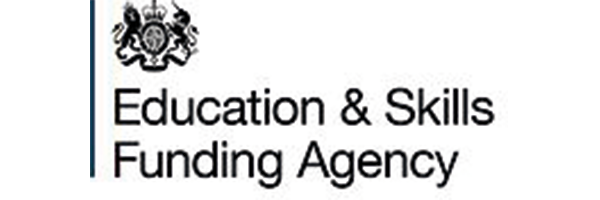Undertaking remote teaching & learning safely
Most learners are being educated at home during the coronavirus (COVID-19) outbreak, so FE leaders and staff are having to adjust to remote education strategies. I have produced an information sheet below to assist both Training Officers and learners carry out remote teaching & learning safely. It includes links for further information and reading as to:
- Safeguarding pupils and teachers online – https://www.gov.uk/guidance/safeguarding-and-remote-educationduring-coronavirus-covid-19
- GDPR – https://swgfl.org.uk/resources/gdpr-guidance-for-schools-and-colleges/
- Phishing – https://swgfl.org.uk/resources/phishing-tackle/
- Information security – https://swgfl.org.uk/resources/12-vital-information-security-steps/
- The consequences of sharing and publishing images of others – https://swgfl.org.uk/resources/with-friends-likethese/
- BBC webwise – http://www.bbc.co.uk/webwise/topics/safety-and-privacy/
While this is happening, it is important that providers continue to follow safeguarding procedures. As set out in the Coronavirus (COVID-19): safeguarding in schools, colleges and other providers guidance, online education should follow the same principles set out in your school’s staff behaviour policy (sometimes known as a code of conduct). Keeping teachers safe when providing remote education is also essential. Remote education is a new experience for both staff and pupils, so it’s important that schools understand how to approach safeguarding procedures online.
Important links below to support learners to stay safe online:
- Thinkuknow https://www.thinkuknow.co.uk – provides advice from the National Crime Agency (NCA) on staying safe online
- Internet matters https://www.internetmatters.org/?gclid=EAIaIQobChMIktuA5LWK2wIVRYXVCh2afg2aEAAYASAAEgIJ5vD_BwE – provides age-specific online safety checklists, guides on how to set parental controls on a range of devices, and a host of practical tips to help children get the most out of their digital world
- Let’s Talk About https://www.ltai.info/staying-safe-online/ – Offer advice to keep learners safe from online radicalisation
- UK Safer Internet Centre https://www.saferinternet.org.uk/about – has tips, advice, guides and other resources to help keep learners safe online, including safety tools on social networks and other online services
What is GDPR? – https://swgfl.org.uk/resources/gdpr-guidance-for-schools-and-colleges/
Information security and data protection are important issues for schools, MATs, colleges and other organisations. It is important that policies and practices around managing personal data are clear and well understood.
What is Phishing? – https://swgfl.org.uk/resources/phishing-tackle/
Phishing is an attempt by a cyber-criminal to obtain information from a user, usually by sending the user an email or message directing them to click links and to provide information at the website the links take them to. The emails (and websites) are typically designed and stylised to look like a genuine email from a legitimate sender. Phishing is a type of ‘social engineering’: attempting to manipulate someone into performing actions they otherwise wouldn’t.
QUESTION – Is the email I just received a phishing email?
It’s Monday. You check your email, as you normally do, and there’s an email from your bank, as there sometimes is. But this one threatens that your account will be closed in 48 hours if you don’t verify your details. All you need to do is click the link in the email and your account will be fine.
ANSWER – This is an example of ‘phishing’, a type of online identity theft that usually uses emails to trick the user in to doing something. Of course, the email isn’t actually from your bank, and your account isn’t going to be closed in 48 hours, and you haven’t won a prize in a competition you knew nothing about, and there isn’t an order waiting for you at a depot. Sorry. Phishing is devious and deceptive, playing on some of our base emotions and manipulating us when we’re vulnerable
A Quick Guide to Information Security- https://swgfl.org.uk/resources/12-vital-information-security-steps/
Information security – or ‘infosec’ – is about protecting information by addressing the risks posed to it. Information security is often also referred to as cyber security. These are twelve key steps you can take (or just check, if you’ve done them in the past) to get some information security fundamentals in place: – A full breakdown is within the link above
- Backup
- Update and up to date
- Update security products too
- Be cautious
- Manage accounts carefully
- Look after passwords
- Check out those files
- Prevent code from running
- Don’t do as you’re told
- Network security and segmentation
- Train Staff
- Plan Ahead
With Friends Like These – https://swgfl.org.uk/resources/with-friends-like-these/
This resource aims to raise awareness in young people of the consequences of sharing and publishing images of others. It demonstrates that seemingly small actions quickly gain momentum and get out of control.
BBC WebWise – http://www.bbc.co.uk/webwise/topics/safety-and-privacy/
This website offers helpful information and guidance on online security, safety and privacy rights, and online safety tips for parents to keep young children secure.
Stop Online Abuse – https://www.stoponlineabuse.org.uk/
This website offers a range of information on online abuse and harassment with particular resources on sexism, homophobia and biphobia, and transphobia.
Please Remember:
We’re here to help. If you have further questions or need our support, please get in touch with our team on 0151 521 5888






